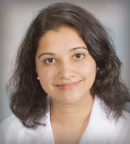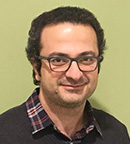Researchers have received a $3.5 million grant from the National Cancer Institute to examine the impact of social networks on the decision-making process among older patients with cancer.
Background
Many individuals have social networks, which includes those who offer a connection and have similar interests and values. These networks can take health care beyond the walls of the medical clinic and exert profound influence. A patient’s personality and the individuals they trust often shape the network. The best networks empower a patient to be resilient.
However, little is understood about what happens to these networks when a patient is diagnosed with cancer. Social networks have been found to influence the decisions of nearly every patient who visits an oncologist’s office. This is especially true for older adults, who account for about 60% of patients with cancer. They tend to have more serious diseases and have complex relationships with the individuals in their support systems.

Supriya G. Mohile, MD, MS
“We know that most [patients] don’t just go and do whatever the [physician] tells them,” noted co–principal investigator Supriya G. Mohile, MD, MS, the Philip and Marilyn Wehrheim Professor of Medicine, Co-Leader of the Cancer Prevention and Control research program, and a geriatric oncologist at the Wilmot Cancer Institute. “First, they’re likely going to talk to people, maybe a spouse, a sister, or a neighbor—and whether their information is right or wrong, technically and medically, it goes into every decision. As medical providers, we must understand that patients live in the context of social networks,” she added.
Study Methods and Results
In the upcoming study, the researchers will seek to better understand the ways in which social networks impact how patients seek care for advanced treatment as well as how these networks change through the cancer journey. They plan to enroll 300 local and regional patients aged 65 years and older with advanced cancer.
The researchers will ask the patients to reflect on who is important in their lives and who might influence their decision-making. Each patient will then receive a mapping template to draw a graphic that displays their social networks.
In a previous pilot study, the researchers demonstrated that although each patient’s map was different, meaningful patterns developed in the way patients connected and gained influencers. This included beliefs about whether a cancer is curable, even if the belief did not match with the medical prognosis.
“We also found that about 40% of patients decide to do additional cancer treatment only because family wants them to press on,” revealed Dr. Mohile. “I hear this in my clinic all the time,” she stressed.
The researchers emphasized that a patient’s social circle can change over time. They hope to assess those dynamics as it relates to cancer. Older patients also rely on their own wisdom and experiences and seem to communicate selectively within their social networks.

Reza Yousefi-Nooraie, MSc, PhD
“For example, if the disease is progressing, maybe they don’t tell their children right away because it’s too sad. So, they may talk to their hairdresser or a friend,” detailed co–principal investigator Reza Yousefi-Nooraie, MSc, PhD, an implementation scientist at the University of Rochester Medical Center.
During the network analysis, the researchers will track the patients’ medical records and what decisions they’ve made regarding treatment. Despite the potential for misinformation from social networks, they indicated that most networks are positive and provide critical support as a patient navigates health challenges.
Conclusions
Separate studies have evaluated social networks in the context of mental illness and stroke care, but the field is relatively new, and older adults with cancer have not been the subject of focused comprehensive analysis.
In earlier studies, featuring recorded interviews, the researchers gained insights into how physicians and patients discuss cancer with the goal of improving communication—particularly for health-care providers. The new project will build on this foundation.

